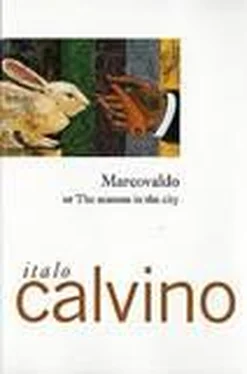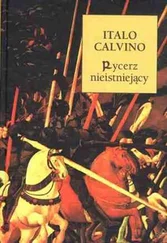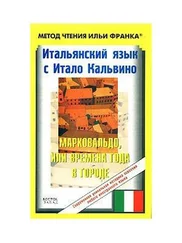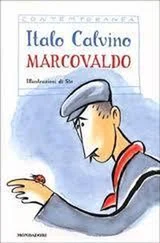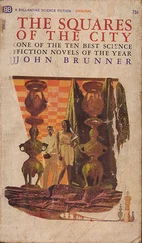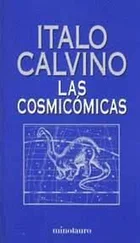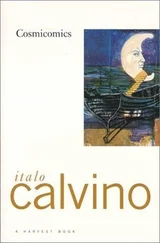"How are you supposed to be dressed?" Pietruccio said. "Like Santa Claus, right?"
"And you recognized me first thing?"
"Easy! We recognized Signor Sigismondo, too; and he was disguised better than you!"
"And the janitor's brother-in-law!"
''And the father of the twins across the street!''
"And the uncle of Ernestina-the girl with the braids!"
"All dressed like Santa Claus?" Marcovaldo asked, and the disappointment in his voice wasn't due only to the failure of the family surprise, but also because he felt that the company's prestige had somehow been impaired.
"Of course. Just like you," the children answered. "Like Santa Claus. With a fake beard, as usual." And turning their backs on him, the children became absorbed again in their games.
It so happened that the Public Relations Offices of many firms had had the same idea at the same time; and they had recruited a great number of people, jobless for the most part, pensioners, street-vendors, and had dressed them in the red tunic, with the cotton-wool beard. The children, the first few times, had been amused, recognizing acquaintances under that disguise, neighborhood figures, but after a while they were jaded and paid no further attention.
The game they were involved in seemed to absorb them entirely. They had gathered on a landing and were seated in a circle. "May I ask what you're plotting?" Marcovaldo inquired.
"Leave us alone, Papà; we have to fix our presents."
"Presents for who?"
"For a poor child. We have to find a poor child and give him presents."
"Who said so?"
"It's in our school reader."
Marcovaldo was about to say: "You're poor children yourselves!" But during this past week he had become so convinced that he was an inhabitant of the Land of Plenty, where all purchased and enjoyed themselves and exchanged presents, that it seemed bad manners to mention poverty; and he preferred to declare: "Poor children don't exist anymore!"
Michelino stood up and asked: "Is that why you don't bring us presents, Papà?"
Marcovaldo felt a pang at his heart. "I have to earn some overtime now," he said hastily, "and then I'll bring you some."
"How do you earn it?"
"Delivering presents," Marcovaldo said. "To us?"
"No, to other people."
"Why not to us? It'd be quicker."
Marcovaldo tried to explain. "Because I'm not the Human Relations Santa Claus, after all; I'm the Public Relations Santa Claus. You understand?"
"No."
"Never mind." But since he wanted somehow to apologize for coming home empty-handed, he thought he might take Michelino with him, on his round of deliveries. "If you're good, you can come and watch your Papà taking presents to people," he said, straddling the seat of the little delivery wagon.
"Let's go. Maybe I'll find a poor child," Michelino said and jumped on, clinging to his father's shoulders.
In the streets of the city Marcovaldo encountered only other red-and-white Santas, absolutely identical with him, who were driving panel-trucks or delivery carts or opening the doors of shops for customers laden with packages or helping carry their purchases to the car. And all these Santas seemed concentrated, busy, as if they were responsible for the operation of the enormous machine of the Holiday Season.
And exactly like them, Marcovaldo ran from one address to another, following his list, dismounted from his seat, sorted the packages in the wagon, selected one, presented it to the person opening the door, pronouncing the words: "Sbav and Company wish a Merry Christmas and a Happy New Year", and pocketed the tip.
This tip could be substantial and Marcovaldo might have been considered content, but something was missing. Every time, before ringing at a door, followed by Michelino, he anticipated the wonder of the person who, on opening the door, would see Santa Claus himself standing there before him; he expected some fuss, curiosity, gratitude. And every time he was received like the postman, who brings the newspaper day after day.
He rang at the door of a luxurious house. A governess answered the door. "Oh, another package. Who's this one from?"
"Sbav and Company wish a…"
"Well, bring it in," and she led Santa Claus down a corridor filled with tapestries, carpets, and majolica vases. Michelino, all eyes, followed his father.
The governess opened a glass door. They entered a room with a high ceiling, so high that a great fir tree could fit beneath it. It was a Christmas tree lighted by glass bubbles of every color, and from its branches hung presents and sweets of every description. From the ceiling hung heavy crystal chandeliers, and the highest branches of the fir caught some of the glistening drops. Over a large table were arrayed glass, silver, boxes of candied fruit and cases of bottles. The toys, scattered over a great rug, were as numerous as in a toyshop, mostly complicated electronic devices and model space-ships. On that rug, in an empty corner, there was a little boy about nine years old, lying prone, with a bored, sullen look. He was leafing through an illustrated volume, as if everything around him were no concern of his.
"Gianfranco, look. Gianfranco," the governess said. "You see? Santa Claus has come back with another present?"
"Three hundred twelve," the child sighed, without looking up from his book. "Put it over there."
"It's the three hundred and twelfth present that's arrived," the governess said. "Gianfranco is so clever. He keeps count; he doesn't miss one. Counting is his great passion." On tiptoe Marcovaldo and Michelino left the house.
"Papà is that little boy a poor child?" Michelino asked. Marcovaldo was busy rearranging the contents of the truck and didn't answer immediately. But after a moment, he hastened to protest: "Poor? What are you talking about? You know who his father is? He's the president of the Society for the Implementation of Christmas Consumption. Commendatore-"
He broke off, because he didn't see Michelino anywhere. "Michelino! Michelino! Where are you?" He had vanished.
I bet he saw another Santa Claus go by, took him for me, and has gone off after him… Marcovaldo continued his rounds, but he was a bit concerned, and couldn't wait to get home again.
At home, he found Michelino with his brothers, good as gold.
"Say, where did you go?"
"I came home, to collect our presents… the presents for that poor child…"
"What? Who?"
"The one that was so sad… the one in the villa, with the Christmas tree…"
"Him? What kind of a present could you give him?"
"Oh, we fixed them up very nice… three presents, all wrapped in silver paper."
The younger boys spoke up: "We all went together to take them to him! You should have seen how happy he was!"
"I'll bet!" Marcovaldo said. "That was just what he needed to make him happy: your presents!"
"Yes, ours!… He ran over right away to tear off the paper and see what they were…"
"And what were they?"
"The first was a hammer: that big round hammer, the wooden kind…"
"What did he do then?"
"He was jumping with joy! He grabbed it and began to use it!"
"How?"
"He broke all the toys! And all the glassware! Then he took the second present…"
"What was that?"
"A slingshot. You should of seen him. He was so happy! He hit all the glass balls on the Christmas tree. Then he started on the chandeliers…"
"That's enough. I don't want to hear anymore! And the… third present?"
"We didn't have anything left to give, so we took some silver paper and wrapped up a box of kitchen matches. That was the present that made him happiest of all. He said: They never let me touch matches! He began to strike them, and…"
"And?"
"… and he set fire to everything!" Marcovaldo was tearing his hair. "I'm ruined!"
Читать дальше
